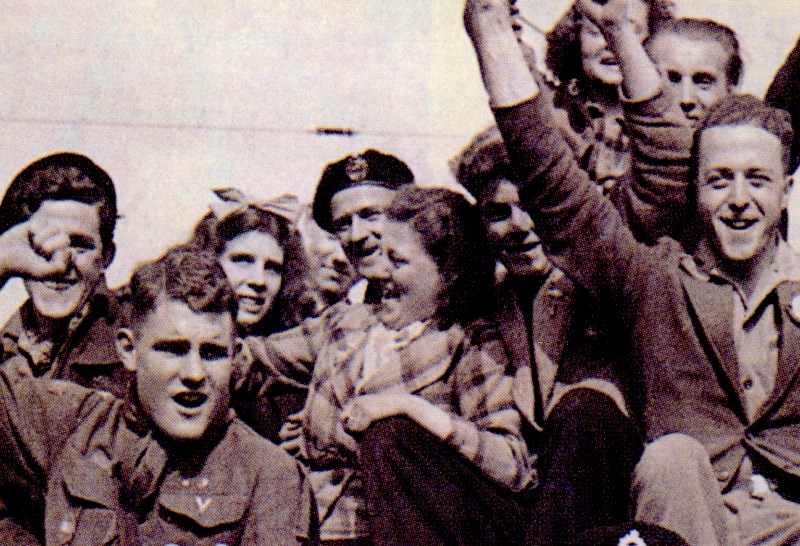This Friday’s Remembrance Day will be the eleventh day of the eleventh month of the eleventh year of this century — 11-11-11.
The date will mark the end of World War I, when an armistice was signed between the Allies and Germany in 1918. The four-year war saw over 8 million deaths, one of the deadliest conflicts in history. But the peace was relatively short-lived; war broke out once again 21 years later. Lasting six years, it resulted in over 60 million fatalities — a number that is almost double Canada’s population.
To most, these are just facts and figures learned from history books, perhaps made more real only by family stories. But for 88-year-old Caslan resident Glen Meyer, it’s different. He was there.
Meyer joined the military at the age of 18 in 1943 and trained in Camrose. He went overseas with a tank battalion at 19 to England, and then to Italy. There, they were constantly under fire as they tried to hide from patrols, Meyer said. It was also cold.
“You think of Italy being a warm place, but it’s not when you get up to the mountains,” he said. “It wasn’t a nice place to be. But somebody had to do it.”
Before the Battle of Cassino, in which the Allies tried to take Rome, Meyer was placed as a Gunner Operator with the Ontario Tank Regiment
“Because I was so highly educated with Grade 9,” he said with a grin, “they put me in the tank.”
Meyer’s main job wasn’t shooting, instead he made sure the guns were loaded and looked after communications.
From the gun turret of his tank, Meyer saw first-hand the atrocities of war. After some time, he was also sent to Belgium, France and the Netherlands, where Meyer’s tank group was sent to Nijmegen as the German forces hunkered down for a final defence. The Allies were trying to stop German forces from destroying bridges vital to the Allied advance. The scene played out in the war epic film “A Bridge Too Far.”
Meyer said it was a terrible scene. And although his group arrived just days after the initial battles, he witnessed mass graves of Allied soldiers and faced continued resistance from pockets of enemy soldiers.
When the war ended in 1945, he was in Holland and was involved in their liberation ceremonies.
“They were happy to see us come, but they were happier to see us go,” he said, explaining that when they were there, Allied soldiers camped out, ate and shaved in the streets. “We were just like a bunch of freaks to them.”
Meyer came back home in 1945 at the age of 21 with five service medals. He is proud of his service, but recalls just being happy to tell his mom that he was back.
“I’m not sorry I went, but I would never advise anyone to go,” Meyer said. “We were at war, it was a thing we had to do.”
After the war, Meyer settled in Caslan and hasn’t left since.
He went back to Italy on a veterans’ tour in 1988, seeing some major changes since he was last there.
“Nothing was the same, everything was rebuilt,” he said. “You’d never recognize the place.”
On the tour, Meyer visited cemeteries scattered all through the country. He said the tombstones showed that soldiers as young as 17 died in the war, and most were between 20 and 23.
For years, Meyer couldn’t talk about his experiences. But he candidly recalled some when he came into the Lac La Biche Post to share his story. With him, he had an album with an unassuming orange cover. It was filled with black-and-white pictures from his war years, carefully pasted and labeled. Some pictures were of him, such as the ones taken while he was in Holland during the liberation. Others were of tanks and other soldiers. As he went through the album and each picture, he remembered facts, dates and places that many of recent generations only learn in school. Some he recalled while smiling, others he said in distant tones.
On this Remembrance Day, like the 66 that have come since his war ended, Meyer says he will be remembering the people he was with, and those who didn’t come back from the battlefields, the mess halls, streets and training centres of Europe.
Meyer will be at the Lac La Biche cenotaph this Friday for the local Remembrance Day services, which begin at 10:30 a.m.



